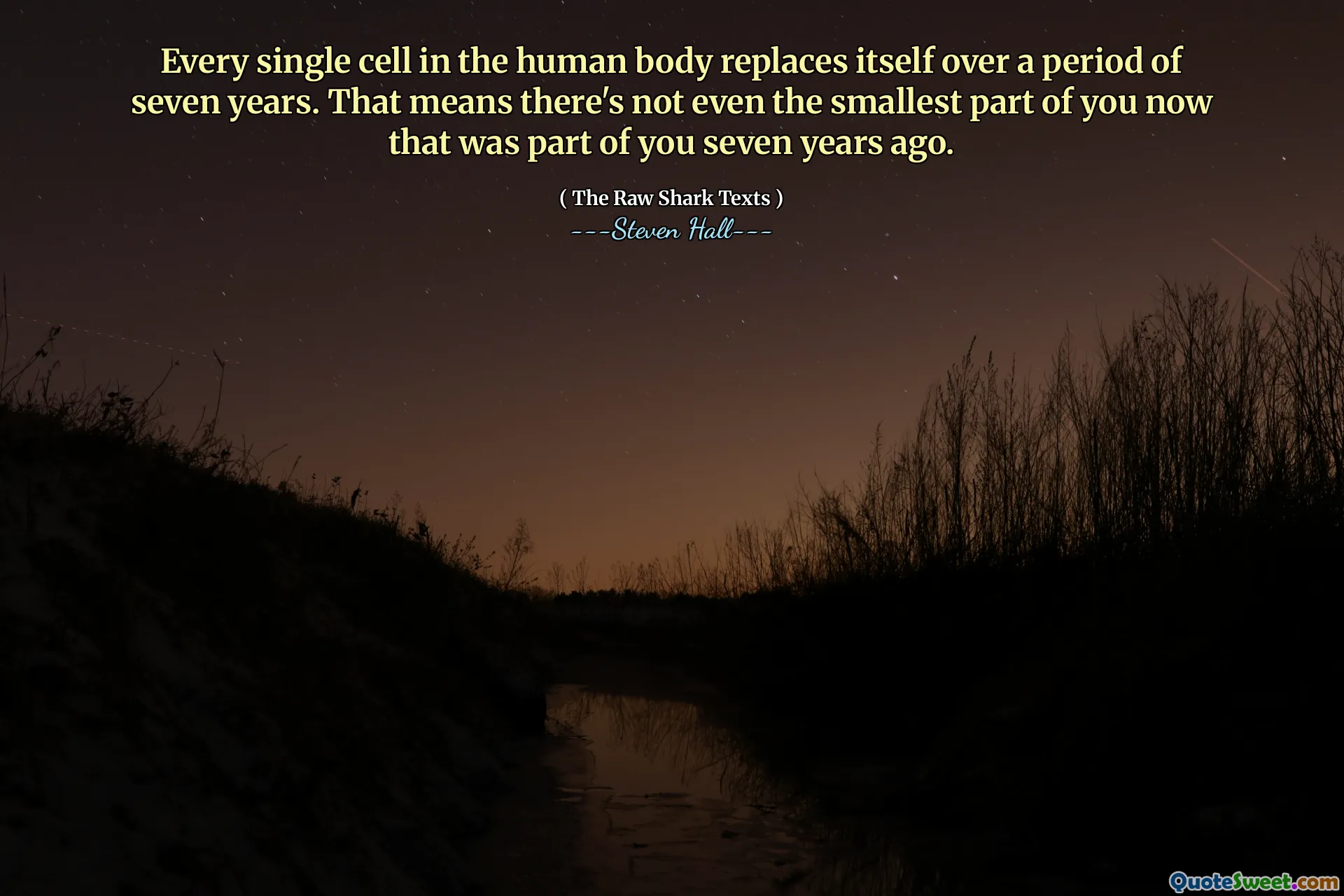
Every single cell in the human body replaces itself over a period of seven years. That means there's not even the smallest part of you now that was part of you seven years ago.
[Markdown format] This quote highlights the astonishing regenerative nature of the human body, emphasizing the constant flux and renewal that defines our very identity. When considering that all the cells in our bodies are replaced approximately every seven years, it prompts a profound reflection on the nature of self and continuity. Despite the physical changes, we perceive ourselves as the same person over time, but in reality, the material components that make up our being are entirely different than those from seven years prior.
This incessant renewal challenges the traditional notions of permanence and stability. It suggests that our sense of self is less tied to the tangible, physical substrate and more connected to patterns, memories, consciousness, and the brain's interconnected networks. Our identity is a dynamic construct, constantly reshaped by biological processes and experiences.
Furthermore, understanding this biological fact brings about a sense of empathy and humility. If our bodies are ever-changing in a continual dance of renewal, then perhaps our perceptions and experiences are similarly fluid. This recognition can inspire a deeper appreciation for the transient yet resilient nature of life, encouraging us to embrace change and growth.
In the broader sense, this information underscores the remarkable harmony between biology and philosophy. It pushes us to reconsider what it means to be oneself amid continual transformation. Such insights often motivate personal reflection on whether our identity is rooted in the physical or something more intangible—like our thoughts, memories, and essence. Ultimately, it illustrates that while the cells and molecules are constantly replaced, the human experience persists through an intricate interplay of continuity amid change.
(The Raw Shark Texts) - Steven Hall






